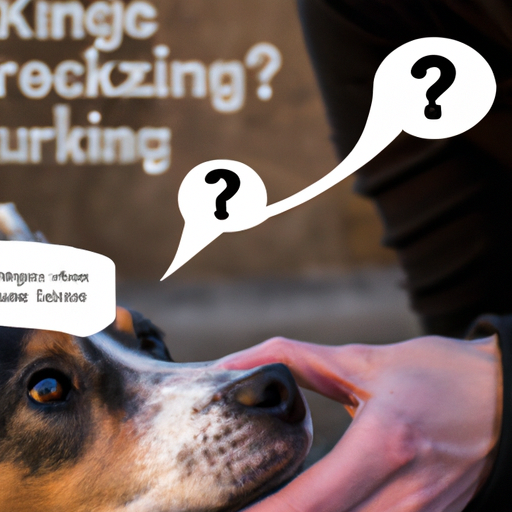As someone who cares for a dog, you may have experienced moments when your furry friend starts to nibble on you. It’s a behavior that can be endearing, confusing, or even a little concerning. Here’s an in-depth look at what it means when dogs nibble on you.
Understanding Dog Behavior
To understand why dogs nibble on us, we must first understand their behavior. Dogs use their mouths the same way we use our hands. They explore the world, play, show affection, and communicate using their mouths.
Communication
Dogs communicate in various ways. They use their body language, vocalizations, and yes, their teeth. When your dog nibbles on you, it’s often a form of communication.
- Affection: Nibbling, especially on your hands or feet, can be a sign that your dog is comfortable with you and shows affection.
- Trust: If your dog nibbles your ears or face, it’s often a sign of trust. It’s a vulnerable area for dogs, and by letting you close, they show you their trust.
- Attention-seeking: Sometimes, dogs nibble to get your attention. If they’re bored or want to play, they might nibble to get you to interact with them.
Play
Dogs, especially puppies, love to play. Nibbling can be a part of their play behavior. It’s a way for them to interact with you, just as they would with another dog.
Is Nibbling the Same as Biting?
It’s important to differentiate between a dog’s nibble and bite. Here’s a quick comparison:
| Nibbling | Biting | |
|---|---|---|
| Pressure | Light | Heavy |
| Intention | Playful/Friendly | Aggressive/Protective |
| Reaction | No Pain | Painful |
Nibbling is a gentle act. It involves the use of teeth, but it should never cause pain. If you ever feel discomfort or pain, it’s likely a bite, not a nibble.
How to Respond to Nibbling?
As a caregiver, your response to your dog’s nibbling will have a significant impact. Here are some steps to take:
- Understand why they’re nibbling: Use the information provided above to determine why your dog might be nibbling. Is it a sign of affection? Are they bored?
- Consider your comfort level: If you’re comfortable with the nibbling and it’s not causing any harm, it’s okay to allow it. However, if it makes you uncomfortable, it’s okay to discourage it.
- Discourage inappropriate nibbling: If your dog’s nibbling is inappropriate or uncomfortable, use positive reinforcement to discourage it. Redirect their attention to a toy or use commands like ‘no’ or ‘stop’.
Dealing with Excessive Nibbling
In some cases, your dog might nibble excessively. This could be a sign of an underlying issue such as anxiety, boredom, or even a health problem. If the nibbling becomes a concern, seek advice from a professional dog trainer or a vet.
Frequently Asked Questions (FAQs)
Why does my dog nibble on me with his front teeth?
This is known as ‘flea biting’ and is a common behavior in dogs. It’s often a sign of affection or playfulness.
Is it okay to let my dog nibble on me?
If the nibbling is gentle and does not make you uncomfortable, it’s generally okay. However, if it’s causing discomfort, it’s advisable to discourage the behavior.
My dog nibbles on me excessively. What should I do?
Excessive nibbling could be a sign of an underlying issue. You should seek advice from a professional dog trainer or a vet.
When does nibbling become biting?
If the pressure from your dog’s teeth causes pain or discomfort, it’s likely a bite, not a nibble. Biting can be a sign of aggression or fear.
From understanding the reasons behind nibbling to knowing how to respond, this guide provides an in-depth look at what it means when dogs nibble on you. As a caregiver, your understanding and response to this behavior will help in fostering a healthy relationship with your furry friend.



